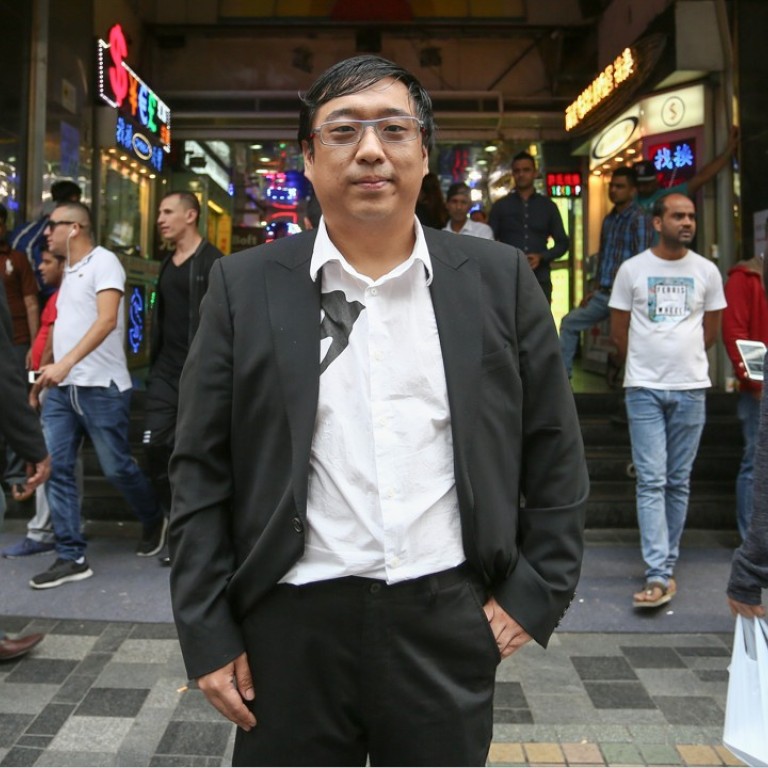
An Airbnb for cows? Hong Kong bitcoin expert creates cryptocurrency to secure higher returns for Indonesian farmers
James Bang creates start-up and new fund-raising method to boost take for farmers from sale of cattle from 20 per cent to 33 per cent of the sale price
Hong Kong bitcoin entrepreneur James Bang was on a trip with his family to Indonesia earlier this year when he realised there were fewer cows on his father-in-law’s cattle farm.
He discovered his father-in-law had sold two cows for HK$27,300 to pay for renovation of the kitchen in the family home. It was a revelation for Bang about the economic dynamics of cattle farmers in the world’s most populous Muslim country.
“For another family, their motorcycle was old and they needed to upgrade. So they sold two or three cows to be able to afford a major purchase,” Bang said.
Why Hong Kong going cashless is no small change
Indonesian cattle farmers can sell a cow for up to HK$15,600, but most only receive a portion of the full price.
Bang decided to use his knowledge of cryptocurrency – a virtual currency using cryptography for security – to find a way for farmers to keep more money from cattle sales and maximise land use.
Cattle farmers purchase calves through financiers who pay for the entire cost of the animal.
After a cow matures for beef production, farmers sell the cow and only keep 20 per cent or less of the sale price, while also paying for the animal’s feed, supplements and veterinarian costs.
Financiers keep the remaining amount.

“I was really inspired by Airbnb,” he said, referring to the online community marketplace which connects people looking to rent their homes or a single room with people looking for a short-term place to stay.
“I figured how can we apply this to the agricultural industry ... There had to be a way these farmers could maximise their extra farm space.”
The result was the establishment of a start-up – named CashCow Coin – and the launch of a new form of fundraising called an initial coin offering (ICO), which allows backers to purchase a percentage of a new cryptocurrency specifically developed for a project.
Dwindling support for bitcoin businesses in Hong Kong
Bang hopes to raise US$15 million through the offering set for launch in October. It will fund the purchase of calves.
Bang said his goal was to give farmers higher returns after they sold a cow – which he set at 33 per cent.
On top of this, he will give investors 33 per cent from every cattle sale, while his start-up will keep the remaining one third to purchase more cattle and build larger cattle sheds.
CashCow Coin’s digital currency will be an ethereum coin – an open source software platform based on bitcoin’s blockchain technology.
The most popular application of ethereum is smart contracts. When run on blockchain, a smart contract operates as a computer programme that automatically operates when specific conditions are met.
After a company pays out dividends through smart contracting, investors can exchange the digital currency for other digital or paper currencies at a cyptocurrency exchange.
Bitcoin bulls on the run, as value charges through the US$2,000 barrier
ICOs are currently unregulated, which means investors have no legal protection if a project turns out to be a scam or goes bankrupt.
So far, hundreds of millions of dollars have been poured into various ICOs, with some experts warning that the market is a bubble which will burst.
“There’s a lot of talk about [ICOs], mostly from people who do not understand how they work and who refuse to engage with the technology,” Bitcoin Association of Hong Kong president Leo Weese said.
“It’s even hard for me to separate scams from real projects in this space, and most are scams.”
Bang said he was aware of some ICOs being frauds, but he noted his start-up was dealing in tangible assets.

